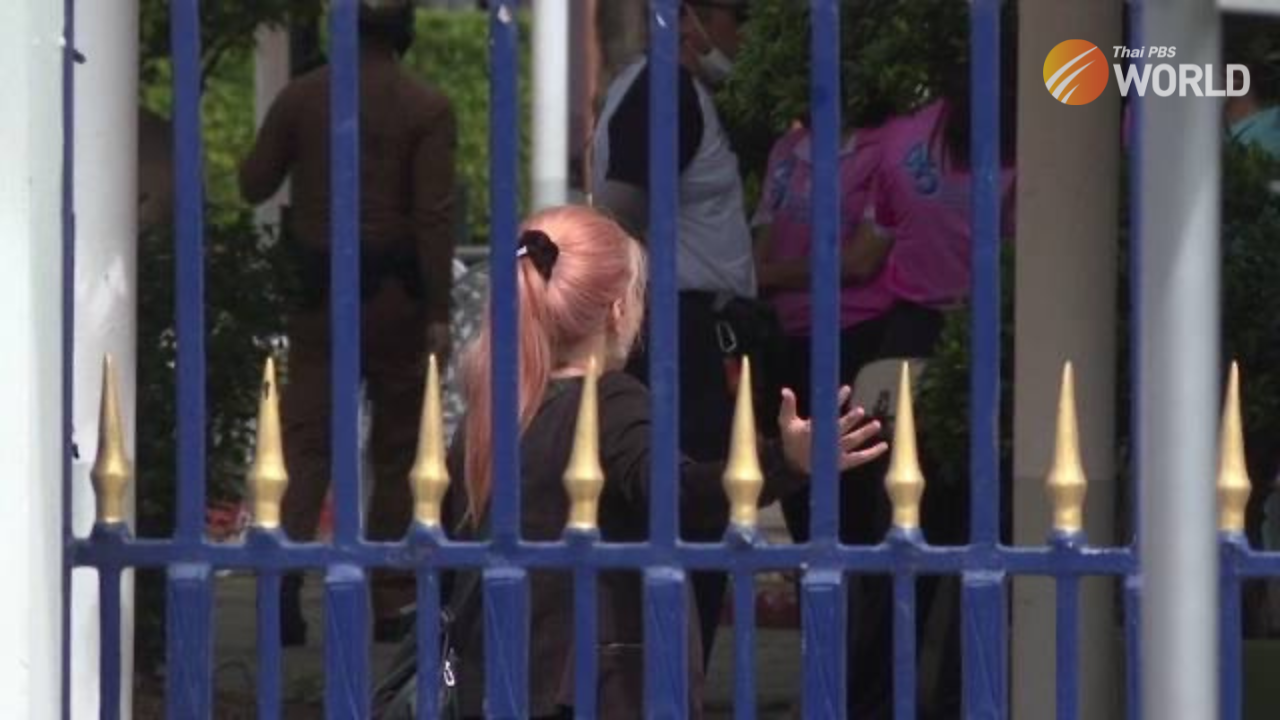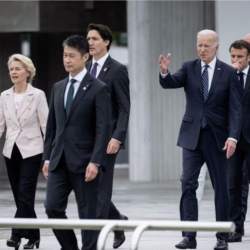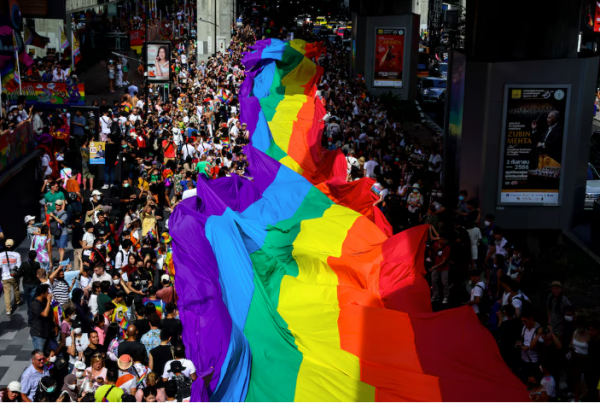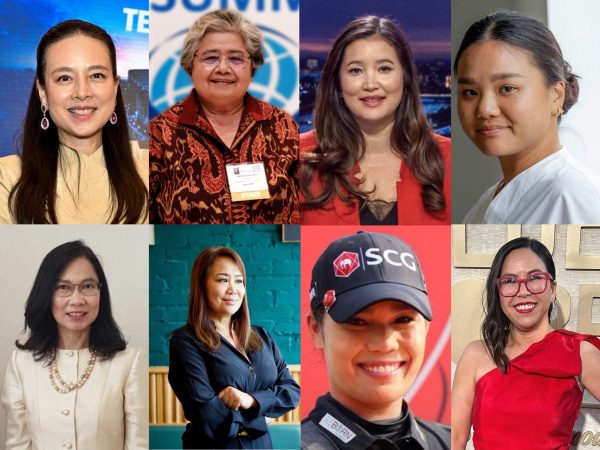How is Thailand’s education system dealing with its youngest lese majeste suspect?

The youngest person to be charged with insulting the royal family in Thailand wants to know why she has been barred from class by her school, which she accuses of ignoring her basic rights.
But no matter what 15-year-old “Yok” did or how much media coverage she received in the past week, Triamudomsuksapattanakarn School would not be swayed.
“She is no longer our student,” the prestigious Bangkok school said in a statement on June 14.
Athapol Anunthavorasakul, who teaches at Chulalongkorn University’s Faculty of Education, said the school’s tough stance and almost complete silence over Yok’s headline-grabbing moves represented a form of violence.
“In choosing to conduct only one-way communication by, for example, holding a press conference, the school director is showing that she holds the power. She does not have to listen to what the girl is saying,” the educator commented.
Is it because she’s an activist?
Athapol believes that the school may have discriminated against Yok because it considers her an activist rather than a child in trouble.
Yok was arrested in March and charged with lese-majeste for her role at an October 2022 rally calling for reform of the royal defamation law, or Section 112, which carries punishment of up to 15 years in jail. She was 14 at the time of the alleged offense.
In 2020, students across the country began holding protests calling for the reform or abolition of Section 112. At least 1,914 people, including 284 children, were prosecuted due to their political expression during “Free Youth” protests that lasted from July 2020 until February this year, according to Thai Lawyers for Human Rights.
After her bail request was rejected, Yok spent 51 days in the custody of the state-run Ban Pranee Juvenile Vocational Training Center for Girls.
Yok was eventually allowed to leave the center in the custody of older friends and activists. As she could no longer contact her parents, one older activist accompanied her to Triamudomsuksapattanakarn School so she could register for the new semester. The school refused, saying she must be accompanied by a parent or guardian, as defined by the Child Protection Act.
The school gave Yok until June 10 to register with a parent. But she couldn’t do so.
Athapol said the school could have reacted differently if it considered her to be a child who could not contact her parents, for whatever reason.
“In my opinion, the school looks at Yok as an activist, someone who is affiliated with political activists and is challenging her seniors.”
What happened at Yok’s school?
Yok was allowed to study in Mathayom 4 at the school for several weeks, before the school asked her to leave, citing her failure to present a parent at registration.
“I was told [by the school] that I was now an outsider,” Yok complained in a Facebook post on June 13.
The post drew a significant number of critical comments saying she deserved to be expelled for ignoring various school rules, including mandatory attendance at the daily flag-raising ceremony and wearing a uniform. She had also dyed her hair – something banned by most public schools in Thailand.
Triamudomsuksapattanakarn School said other students follow rules that are published in the student manual and approved by all school stakeholders, but Yok has defied them.
“While we have done our best to take care of her within our system, she has not been cooperative,” the school said.
Mothers of several other students confronted Yok when she sneaked into class after the school declared her an outsider.
Struggle against authorities
Athapol said Yok’s defiant actions were aimed not just at Triamudomsuksapattanakarn School but at the rules imposed across the state-school system.
“Her actions are a political protest. She is speaking up to challenge the use of state power,” the lecturer said.
Yok explained that she abandoned the school uniform and dyed her hair to express her individual freedom. She said she could not understand why students at private schools were given more freedom. Private schools like the Bangkok Christian College allow children to attend classes wearing whatever they choose one day a week.
In Athapol’s view, the right way to handle a child when they behave like Yok is by communicating.
“But we have not seen that kind of response,” he said.
What do authorities say?
The Office of Basic Education Commission (OBEC) says that if Yok refuses to follow school rules, she is free to choose another form of education such as home-schooling or informal education.
“I hope the public will understand that schools need to teach children to be good and to get along with others. That’s why we need to have rules,” OBEC secretary-general Amporn Pinasa said.
Athapol offers a contrasting view, saying that if the Education Ministry respected children’s rights, it would have sent a different signal.
Confusing direction
Athapol said while Thailand in recent years seemed to be making progress in relaxing school rules to allow children greater freedom, the reactions to Yok’s case suggested the country had advanced hardly at all down this road.
“While there has been praise recently for allowing students to have longer hair and even wear make-up or dress based on their gender identity rather than sex at birth, so many people have criticized Yok’s behavior,” he commented.
Empathy needed
Social media sites such as Twitter have been buzzing with messages of support for Triamudomsuksapattanakarn School, saying that it should stand its ground in the face of Yok’s defiance. In the eyes of her conservative critics, Yok’s actions are aggressive and inappropriate.
Athapol said people need to look deeper and examine why Yok may have acted against authority in these ways, what she had faced during rallies, and what she had endured during her detention.
“How has her trust in adults disappeared?” he asked.
“Behind that mistrust is pain.”
Netiwit Chotiphatphaisal, a student at Chulalongkorn University, said he also used to face a lot of pressure and discrimination for his liberal stance He used to question authoritarian practices at schools and, in return, had to suffer a barrage of criticism. But looking back, he said he survived thanks to the support of a small group of friends plus a few teachers and adults.
“They may have not agreed with me or understood me in full. But they had enough humor, could recognize my good intentions, and were willing to offer me opportunities,” he commented on Twitter.
By Thai PBS World’s Political Desk






